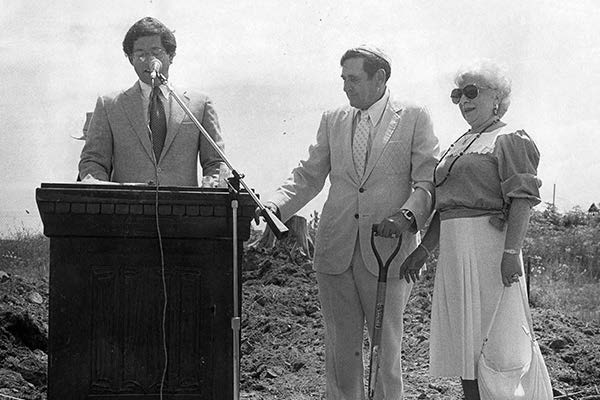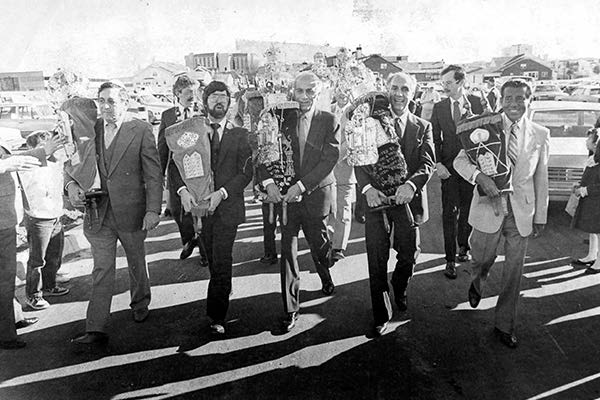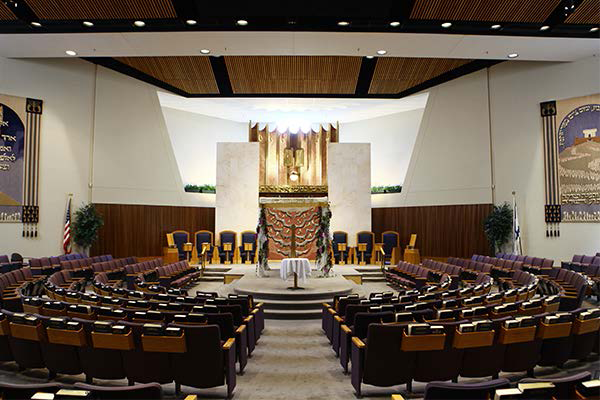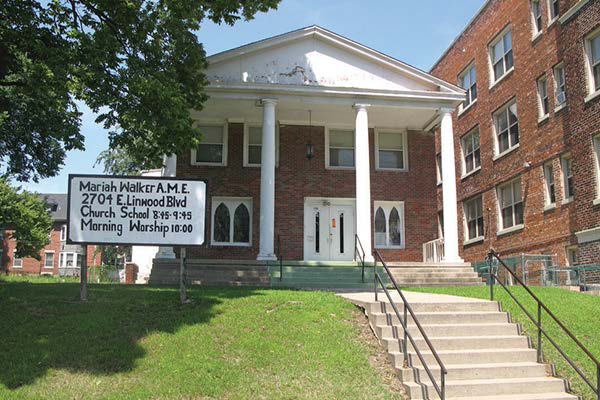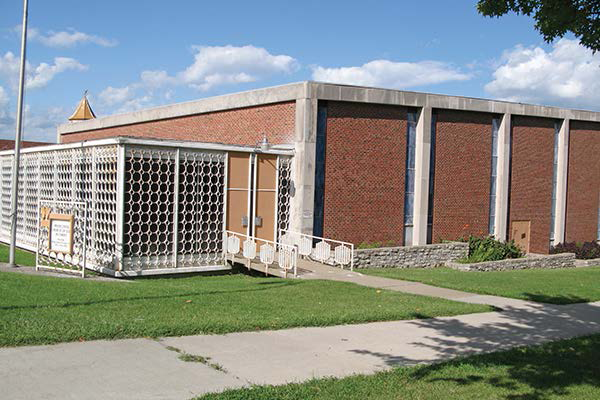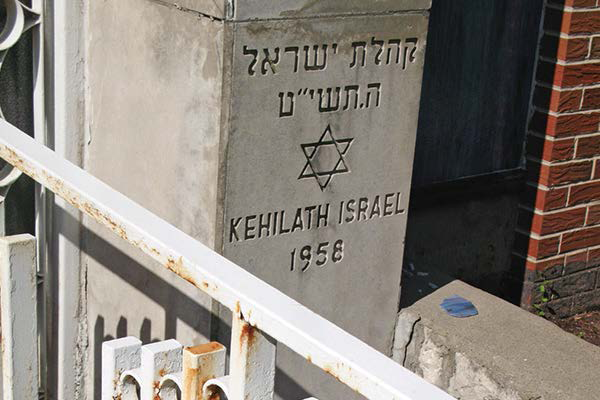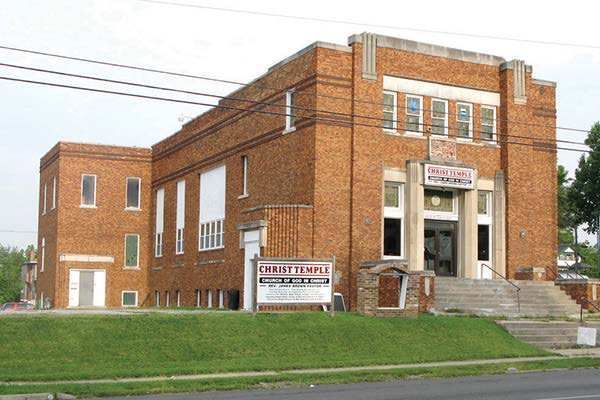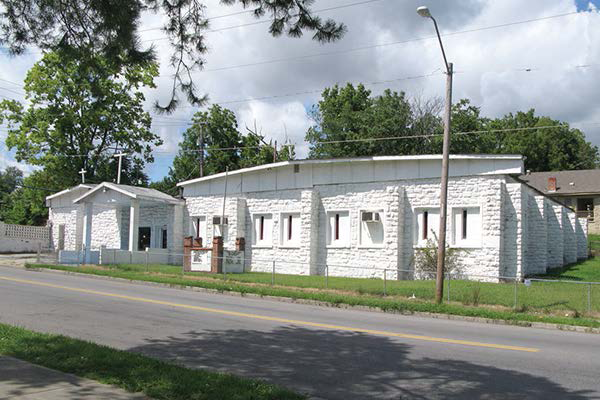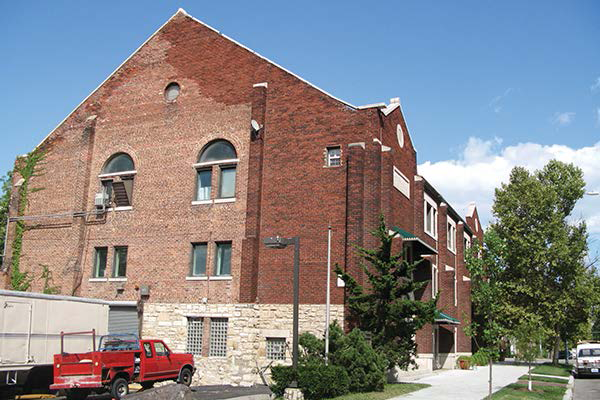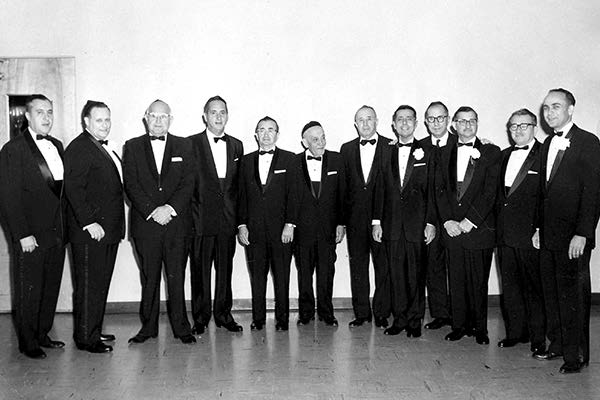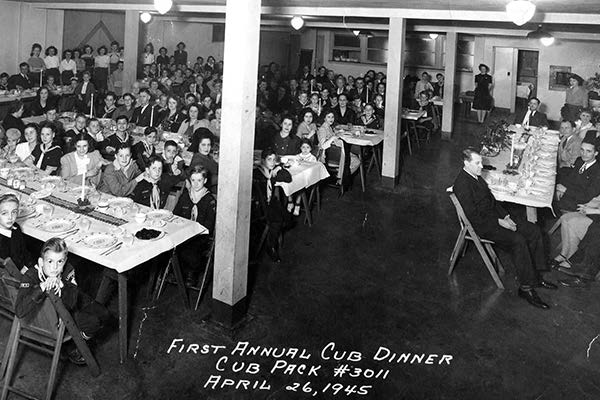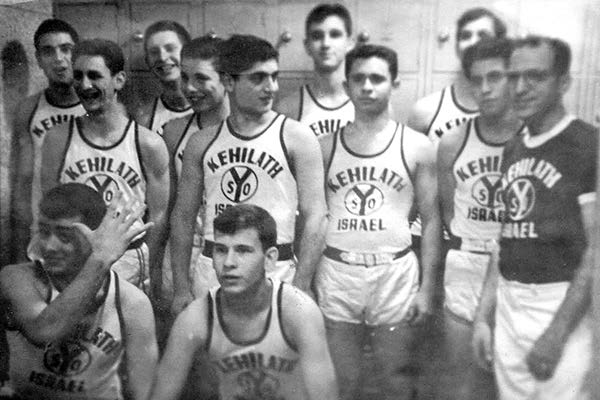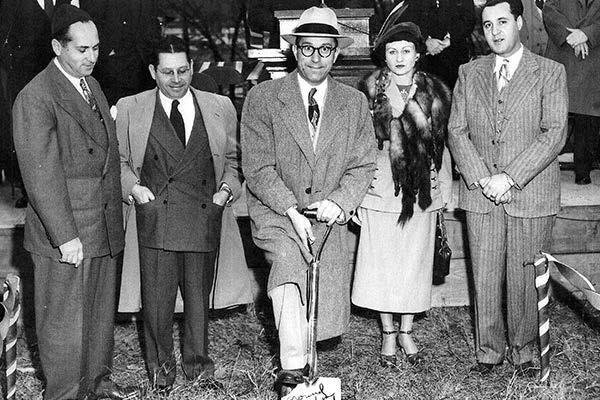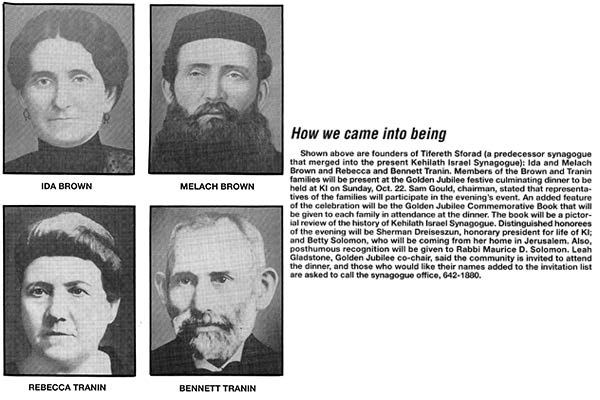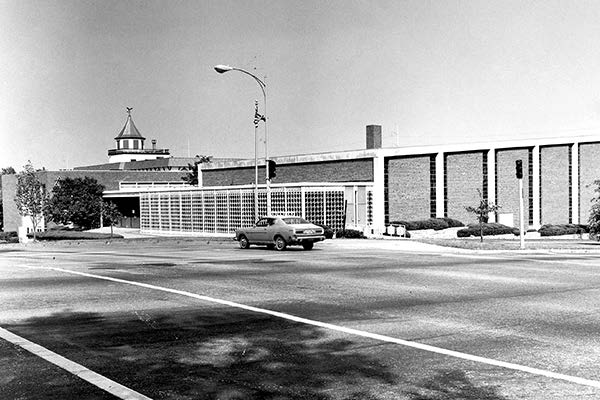It is a Tree of Life to those who hold fast to it and all of its supporters are happy.
The Tree of Life is symbolized throughout the Kehilath Israel campus. The congregation's members will celebrate the roots of its Tree of Life and continues to strengthen its branches. The roots of the congregation can be traced back to 1910 when Melech and Ida Brown held services in their home and founded Tifereth Sforad along with Bennett and Rebecca Tranin. Both the Brown and Tranin families still maintain ties with K.I.
The congregation became known as Kehilath Israel in 1945. By that time five different Orthodox congregations had come together in one way or another, including Tifereth Sforad.
The other congregations that joined to make up Kehilath Israel were established by 1920. Their names and locations were:
- She'erith Israel d'Lubavitz, 924 Olive Street, Kansas City
- Tifereth Israel, Admiral Boulevard and Tracy Street, Kansas City
- Kerem Israel, 39th and Montgall Streets, Kansas City
- Beth Jacob, 2704 E. Linwood Boulevard, Kansas City
Rabbi Maurice D. Solomon joined the congregation in 1934. Sam Gould, a former K.I. president who has been affiliated with the congregation for 86 years, said he believes Tifereth Sforad "was the only Orthodox congregation that had its own rabbi" at the time.
In 1945 the combined membership of the new Kehilath Israel numbered 425 families, resulting in an enrollment of 368 children in the religious school. During this time the congregation actually owned two buildings, but none were large enough to contain all the students or the more than 1,000 people expected to attend High Holy Day services. So later that year members decided to build a new structure for the growing congregation. Names well known to the K.I. family - Harry B. Strauss, Jacob Mnookin and Louis Walter - chaired the committee that eventually chose the site at Meyer and Rockhill in Kansas City, which was to house the synagogue from 1951 to 1983.
"It was a bold step, and because it was so far out, we lost 100 members immediately," Gould said.
Because the Jewish community was committed to taking care of the great needs overseas in the late 1940's, the building campaign for the new structure began to lag. So leaders hat to choose whether to build a school building or a sanctuary. The school building, which included an assembly hall that pulled double duty as a sanctuary, took precedent and the building was dedicated in May 1951.
By the time the sanctuary opened in 1959, the congregation preferred not to have a mechitza, and to institute family style seating. But mixed seating spelled the beginning of the end for K.I.'s affiliation with the Union of Orthodox Jewish Congregations of America.
Welcoming the immigrant community
Holocaust survivors were moving to Kansas City at the same time K.I. was raising funds to build its new building. The congregation became the religious home of many survivors, including Fred and Maria Devinki. Maria recalled that when they first moved to Kansas City, the couple did not have the money to join the congregation. But they greatly enjoyed attending Shabbat worship at K.I. When Rabbi Solomon learned that the Devinki family couldn't afford membership, he offered them a free membership - complete with religious school training for their son.
As an acknowledgement of the synagogue's original kindness to the family, Maria and her children - Sam, Karen and Ida - created an endowment in memory of her husband, Fred, to provide free religious school education to the children of K.I. members.
Rabbi Solomon's brother, Ben, joined the congregation in 1947 as its cantor and stayed until 1986. He passed away in 2003. Cantor Solomon's widow, Dr. Rochelle Solomon, is still a member of K.I. and lives in Kansas City. Rabbi Solomon remained at Kehilath Israel - his first and only pulpit - until he retired in 1973, at which time he made aliyah to Israel with his wife, Betty, and daughter, Sheila. He passed away in Israel in 1983 at the age of 71. Betty Solomon passed away in 2003. Sheila still lives in Israel.
Earl Berris succeeded Ben Solomon as Cantor in August of 1986 and stayed until July of 1997.
Seymour Krinsky served as Associated Rabbi from 1952 - 1955 and then, after changing professions, served K.I. since then as a member, volunteer and leader.
Following Rabbi Solomon's retirement, Rabbi Gilbert Shoham and Rabbi Avraham Radzik served as spiritual leaders. Rabbi Herbert Mandl became the congregation's spiritual leader in 1977.
The move to Johnson County, Kansas
The synagogue remained at its Meyer and Rockhill location until 1983, when the move to Johnson County was finalized. When the building was sold and the congregation moved across the street into temporary quarters at the Cleveland Chiropractic College, Rabbi Mandl said: "The secret of our shul is not only a location, but the people and the activities which bring them closer to our synagogue. The warmth and special nature of the congregational family will continue and - hopefully - grow both during and following this transitionary stage."
After three years in the temporary location, Rabbi Mandl said, "We have finished our wandering through the desert and are now preparing to enter our promised land."
The building was dedicated during a three-day celebration February 25 - March 2, 1986.
Rabbi Mandl led the congregation until his retirement in 2012 when he became Rabbi Emeritus and remains in the community with his wife, Barbara and recently was honored by the Vatican by allowing him to pursue his research in the highly restrictive and private Vatican Library in 2013.
Following Rabbi Mandl, Rabbi Shmuly Yankowitz became our congregational rabbi on August 12, 2012 and continued until April 2013. He was succeeded, first as Interim Rabbi and then as Senior Rabbi, by Rabbi Jeffrey Shron, who began his tenure with K.I. as Hazzan on August 1, 1997 and was formally appointed in December 2013.
After Rabbi Shron made aliyah (moved to Israel), Rabbi Mandl took the position of Interim Rabbi, and on August 1, 2018, Rabbi Moshe Grussgott became the synagogue's Senior Rabbi.


